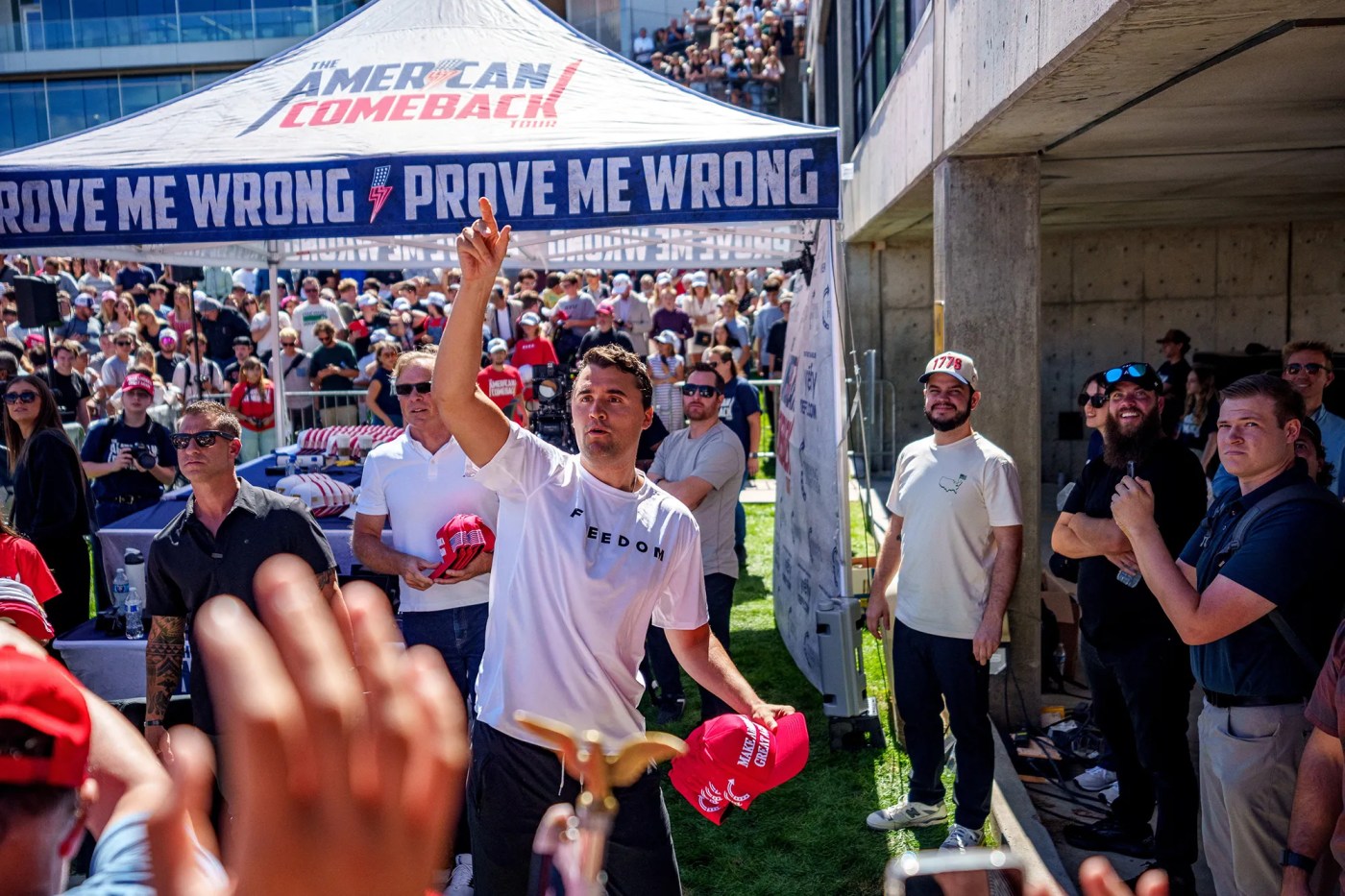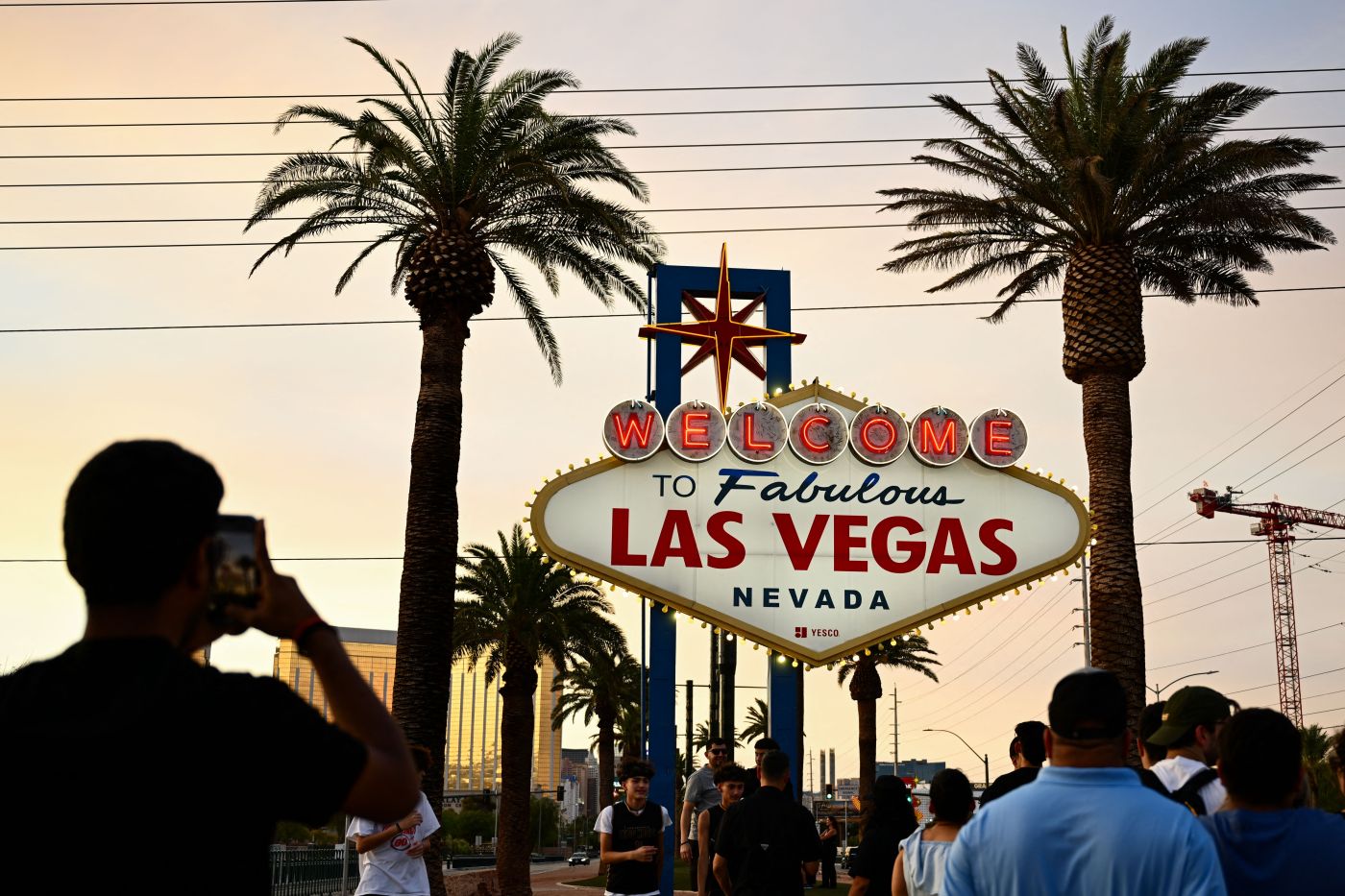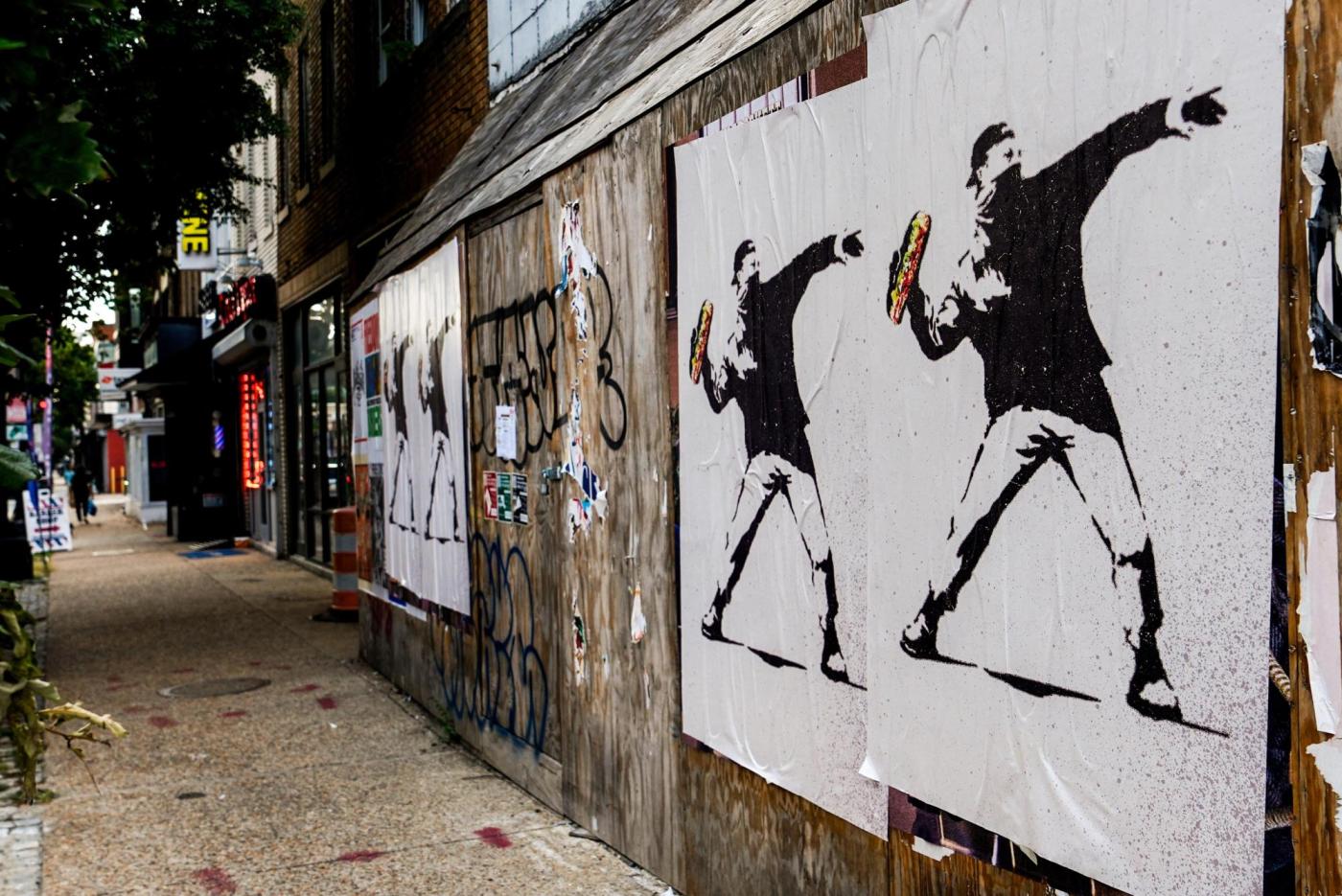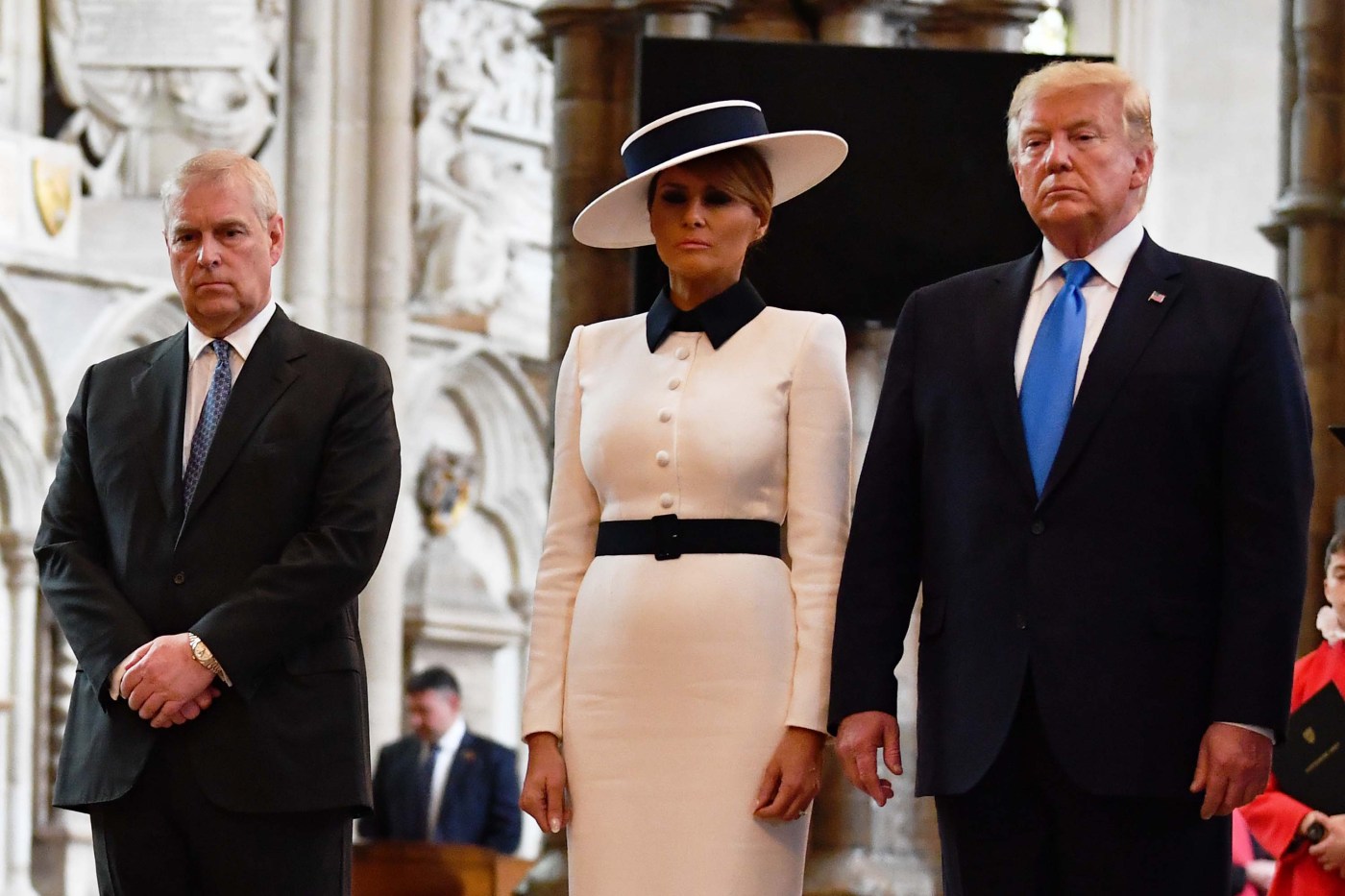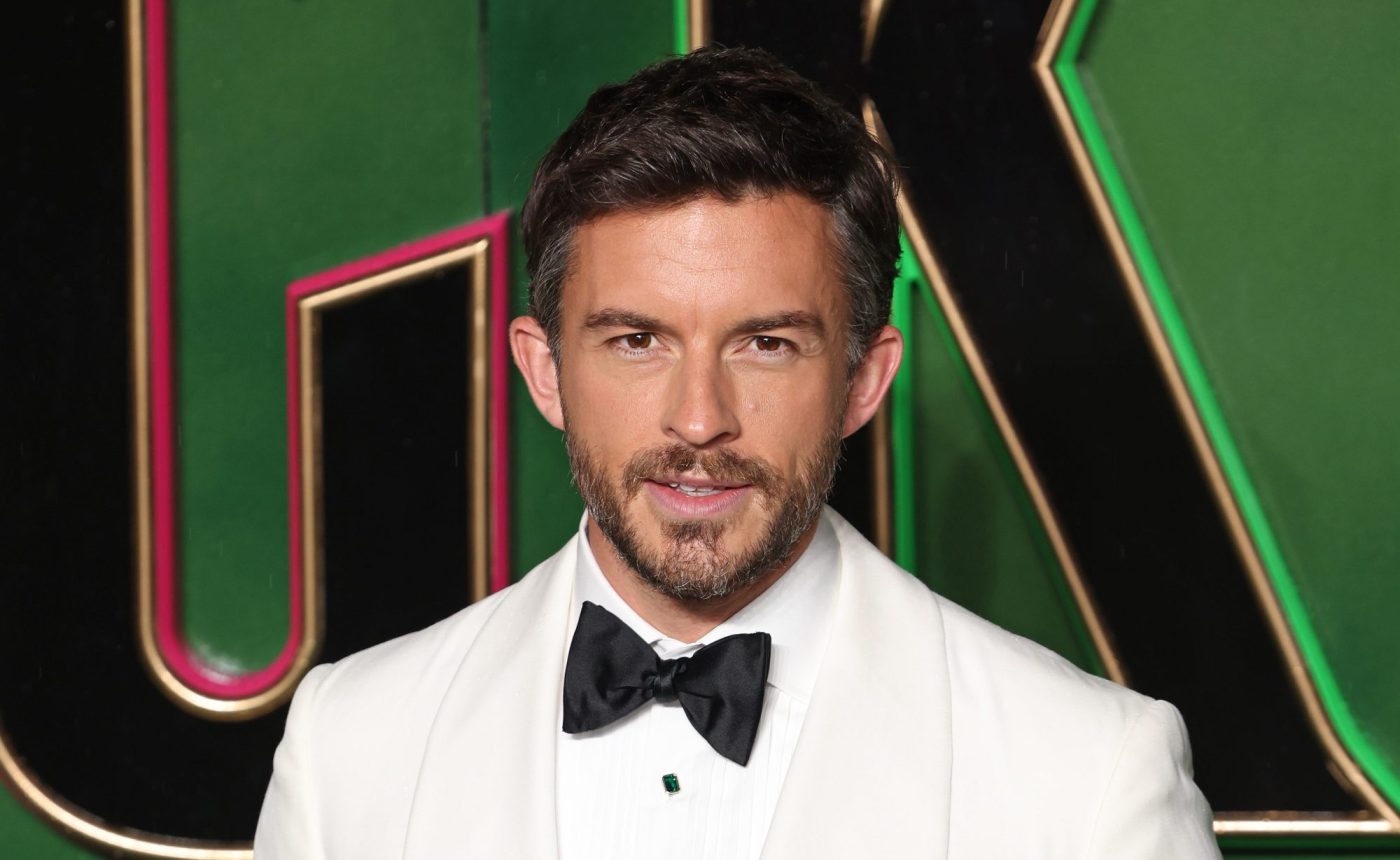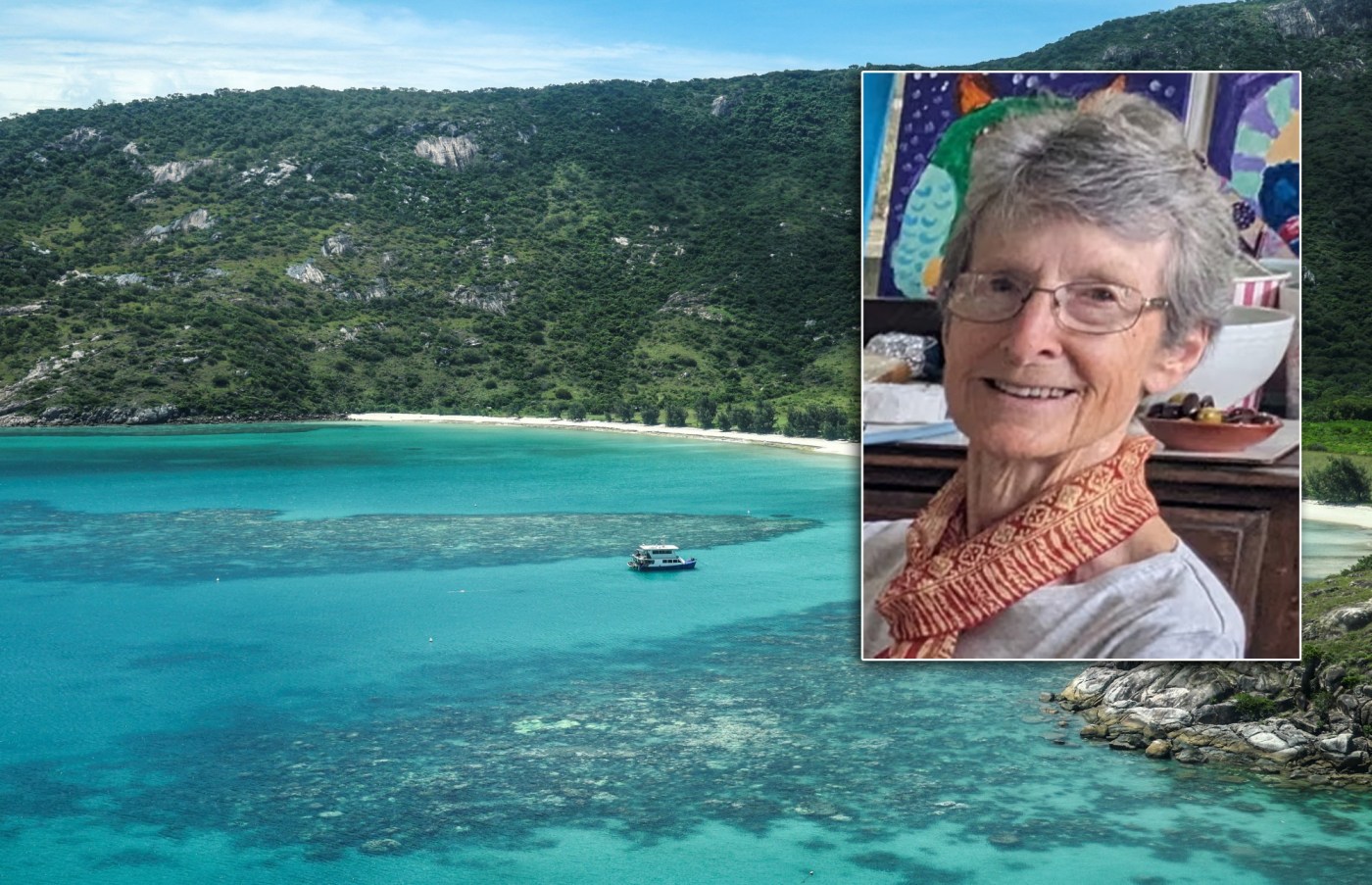By Ella Carter-Klauschie and Martin Romero, CalMatters
Two months after conservative advocate Charlie Kirk’s assassination during a tour stop at a Utah university, his organization, Turning Point USA, will conclude its “American Comeback Tour” at UC Berkeley on Nov. 10 with heightened security.
Turning Point USA is a nonprofit organization that seeks to promote conservative values on high school and college campuses. It was co-founded by Kirk and his late mentor, Bill Montgomery, in 2012.
Related Articles
Berkeley, a Look Back: Military inspects site in 1925 for possible airport
They said it: Making peace with housing on Berkeley’s People’s Park
CSU faculty sue over disclosure of personal information to Trump administration
Progress on housing at Berkeley’s People’s Park elicits mixed feelings
Want to get creeped out for Halloween? Take this ghost tour of UC Berkeley
The Berkeley stop will be Turning Point USA’s first event at a California college campus since Kirk was fatally shot on Sept. 10. Kirk’s killing has intensified concerns about political violence and renewed debate over how universities balance security and free speech.
The issue has become personal for John Paul Leon, junior and president of Berkeley’s Turning Point USA chapter, which was established in 2019. He began preparing for Kirk’s anticipated visit months before his death.
“(We’ve) been wanting Charlie for a long time,” Leon said. “I’ve been planning this since… June… It’s been a lot of work, but it’s definitely worth it.”
Leon knew Kirk personally; he had met the conservative activist several times and even had breakfast with him at a Student Action Summit in Tampa Bay, Florida, over the summer, where they talked about “Epstein, Israel and dating.”
RELATED: University of California students, professors and staff sue the Trump administration
He described the day Kirk was killed as “possibly the craziest day of my college experience.” The Berkeley chapter had planned to announce Kirk’s visit to campus that night.
“As I was spreading the word, I got sent the video of the shooting,” Leon said. “My first reaction was ‘that has to be AI, no way,’… it was just completely tragic to see.”
Leon and his club still gathered that night, but instead of the celebration he had expected to have hours earlier, they held a “last-minute” vigil where conservative leaders spoke in Kirk’s honor.
Since that day, the Berkeley Turning Point USA chapter’s membership has grown significantly, according to Leon. Prior meetings hovered around 30 people, but over 100 attended the vigil. This semester’s smallest meeting had 60 attendees, Leon said.
‘American Comeback Tour’ returns to the road
After a brief pause, the tour has since made nine stops at college campuses across the country, featuring Vice President JD Vance, former Fox News talk show host Tucker Carlson, 2024 Republican presidential candidate Vivek Ramaswamy and other prominent conservatives.
The Berkeley event will feature comedian and actor Rob Schneider and Christian apologist speaker Frank Turek at Zellerbach Hall. Both Turek and Schneider were friends of the late conservative activist, with Turek being a longtime mentor to Kirk and present when he was assassinated.
Dan Mogulof, a UC Berkeley spokesperson, said, as of Oct. 14, the Berkeley chapter expected 300 attendees, though the hall has a capacity of nearly 2,000. The chapter has not responded to requests for the number of people registered for the event.
Police stand during a Turning Point USA event featuring founder Charlie Kirk at UC San Diego on May 5, 2025. Photo by Michael Ho Wai Lee, SOPA Images via Reuters
Other campus tour stops have had enhanced security measures. At Virginia Tech on Sept. 24, attendees were required to show identification, were not allowed to bring bags, and had to pass through metal detectors to access the event. The University of Oklahoma Turning Point USA president told the student newspaper, OU Daily, that their chapter paid for increased campus police presence at its Oct. 16 event. The tour has so far occurred without any incidents and with a record turnout.
In a letter sent to all UC chancellors on Sept. 23, UC President James B. Milliken addressed Kirk’s assassination and directed all campuses to “take immediate steps to review existing procedures for hosting events.” He further advised that all campuses consider indoor venue locations, bag checks and ticket scanning, among other precautionary measures, to reduce safety risks for event speakers and attendees.
“The murder of Charlie Kirk at Utah Valley University was a reminder that we must always remain vigilant,” Milliken said in the letter. “Universities are places where civil discussion and debate can and should occur, without the fear or threat of harm.”
Mogulof declined to provide any details on how UC Berkeley plans to secure the Nov. 10 event. Mogulof said the university will be following protocols set by the major events policy, which dictates that the University of California Police Department must make security recommendations on a case-by-case basis.
Leon, who helped coordinate Berkeley’s event, said bags will not be allowed into the event, there will be a list of prohibited items and security will be stationed both inside and outside. He declined to provide further details, citing security concerns. He also would not say whether the chapter is pitching in for any costs for additional security.
According to the major events policy, event organizers are required to reimburse the costs of event security provided by UC Berkeley’s campus police department.
In an email statement, Capt. Sabrina Reich said that the campus police department could not share specific security details, but said that it conducts safety assessments for major events “using best practices and in coordination with campus partners.” She added that UCPD will “take whatever measures are deemed necessary to have a safe and successful event.”
Berkeley law professor Jonathan Simon advised that the university should speak with potential counter-protestors prior to the event to be prepared.
“You need to be in dialogue well before the protests happen with the groups that are likely to be involved in it,” Simon said. “They’ve got to take responsibility for how they’re going to be organized and the university can support, can encourage, can make the police available to them to do advanced planning if they’re going to be doing a march or things of that nature.”
Initially, the Turning Point USA visit was supposed to include two events, one in the morning where Kirk would debate students outside in his typical “Prove Me Wrong” format and an evening program with Turek and Schneider. The debate was canceled after Kirk’s death and the program was moved indoors for security reasons, Leon said.
Campus students and faculty have mixed reactions
UC Berkeley is a stronghold for progressive student activism and was the home of the Free Speech Movement in the 1960s. Kirk himself described his campus visits as open forums for debate. Leon credited him as being an advocate for “free expression and exchange of dialogue.”
“(Kirk) said that we need to continue the conversations, because when we stop talking, that’s when violence happens,” Leon said. “I’m going to make sure I’m always a person who’s willing to have a conversation, so that way we would never have the need for violence.”
On a recent day on UC Berkeley’s Sproul Plaza, a central site for sit-ins and rallies on campus, students noted a rise in conservative voices since Kirk’s death, primarily on social media, where peers have been more outspoken in posting their views.
Sather Gate on the campus of The University of California, Berkeley in Berkeley on March 25, 2022. Photo by Martin do Nascimento, CalMatters
Miguel Muñiz, president of the Berkeley College Republicans, said his club members have been more willing to “be public with what they think.”
“I’ve seen a lot of people that are moving to the right because they’re going back and they’re actually watching this stuff that Charlie did,” Muñiz said. “I originally was very pessimistic, but now, looking at the movement that has started, it’s made me really look forward to what might be able to rise from the ashes.”
Sophomore Jackie Campion said she thinks Turning Point USA is an “unhealthy” ideology for young people, but because of the university’s commitment to free speech, the group has a right to say what they want on campus. She added that she believes open communication is the only way to change minds.
Other critics deride Kirk’s hardline, controversial stances on social issues. Kirk was often overtly racist and misogynistic, also speaking out against the LGBTQ+ community and migrants. He was frequently quoted as being concerned about “the great replacement theory” and saying women should submit to their husbands, according to an article from The Guardian.
“You heard that he was, like, this wonderful, like, Johnny Appleseed character that was coming to campuses and talking to students who had apparently never been talked to by people about difficult issues,” law professor Simon said. “If you actually read about the kind of things he said, he was hardly somebody who sort of tried to build a big tent of any kind. He was extremely rejecting of whole groups of people.”
At the University of Minnesota, which hosted the first event after Kirk’s assassination, the Minnesota Star Tribune reported that several professors moved classes online. Some cited Turning Point USA’s “professor watchlist,” which seeks to “expose and document college professors who discriminate against conservative students and advance leftist propaganda,” according to the group’s website.
Several students said that while they aren’t happy about the Turning Point USA event, they recognize Berkeley’s commitment to free speech, which allows speakers like Turek and Schneider to come to campus.
Leela Mehta-Harwitz, coalitions chair for UC Berkeley’s chapter of Young Democratic Socialists of America, said the organization has no plans to protest, attend or otherwise engage with the Turning Point USA event. They made a distinction between the national organization and the campus chapter, saying that the former is extremely harmful and “inflammatory,” and the latter is one they disagree with but see as “colleagues” on campus.
“We don’t feel like it’s worth our energy,” Mehta-Harwitz said. “Turning Point USA is famous for clip farming. They’re well-known for getting inflammatory clips that deliberately paint left-wing activists in a bad light. We’re not interested in being fodder for their social media cycle and being misrepresented.”
UC Berkeley political science professor Susan Hyde emphasized that all speech, even hate speech, is technically a protected right under the First Amendment. She added that most of the students she’s had in class are open to discussion of alternative viewpoints on campus.
“We strive to be a campus where people can listen to ideas that they disagree with, they can listen to ideas that they even find offensive, and still understand that this is part of our constitutionally protected rights,” said Hyde. “We can have respectful engagement with lots of different ideas on this campus. I think that’s part of our mission, and part of what the Free Speech Movement at Berkeley has meant.”
